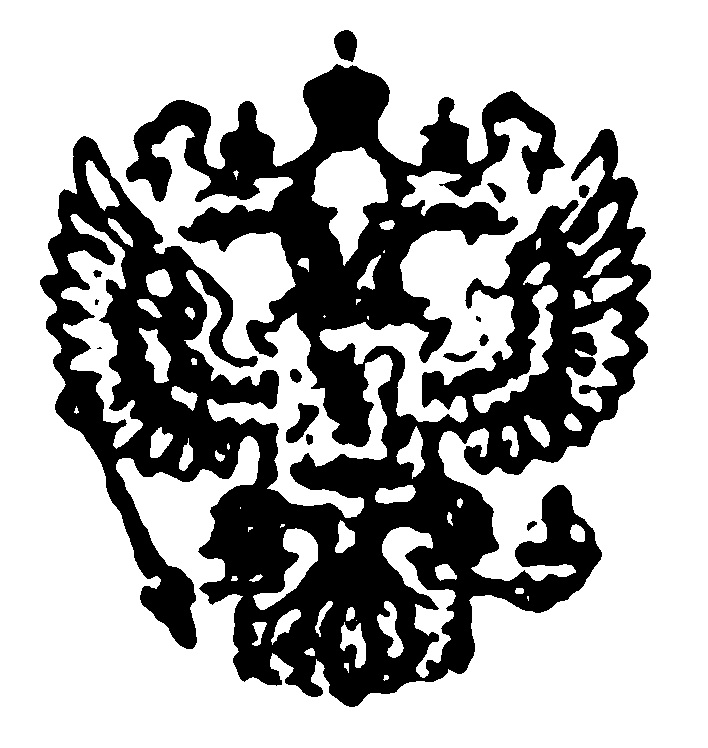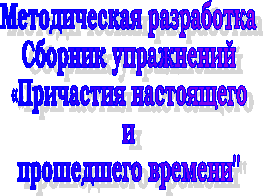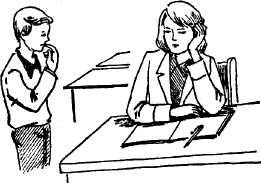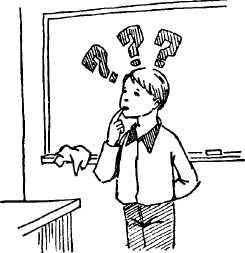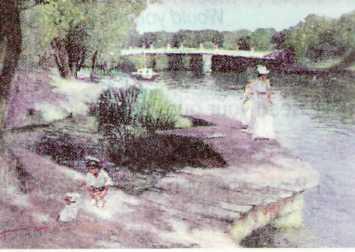I wonder what doctor brown thinks of the medical problem now
I wonder what doctor brown thinks of the medical problem now
Методическая разработка «Причастия настоящего и прошедшего времени»
Данное методическое пособие предназначено для студентов 1-4 курсов по дисциплине «Иностранный язык» всех специальностей.
Предлагаемое методическое пособие содержит четыре раздела:
1. Теоретический материал по теме «Причастия»;
2. Упражнения на усвоение грамматического материала;
3. Тесты по теме «Причастие»;
4. Ключи к тестам.
Просмотр содержимого документа
«Методическая разработка «Причастия настоящего и прошедшего времени»»
Тайгинский институт железнодорожного транспорта
филиал государственного образовательного учреждения
высшего профессионального образования
«Омский Государственный университет путей сообщения»
ФАКУЛЬТЕТ СРЕДНЕГО ПРОФЕССИОНАЛЬНОГО ОБРАЗОВАНИЯ
«ТАЙГИНСКИЙ ТЕХНИКУМ ЖЕЛЕЗНОДОРОЖНОГО ТРАНСПОРТА»
«Причастия настоящего и прошедшего времени».
Данное методическое пособие предназначено для студентов 1-4 курсов по дисциплине «Иностранный язык» всех специальностей.
Предлагаемое методическое пособие содержит четыре раздела:
1. Теоретический материал по теме «Причастия»;
2. Упражнения на усвоение грамматического материала;
3. Тесты по теме «Причастие»;
4. Ключи к тестам.
Пособие составлено с учетом современных действующих программ и может применяться на всех этапах обучения английскому языку.
Это методическое пособие позволит студентам быстро подготовиться к зачетной работе, опросу или самостоятельно проверить правильность усвоения теоретического материала. Пособие предназначено как для самостоятельной работы, так и для аудиторной работы под контролем преподавателя.
Причастие — это неличная форма глагола, которая обозначает признак предмета по действию и отвечает на вопросы «какой? какая? какое? какие?»
Причастия соединяют в себе грамматические признаки глагола, прилагательного и наречия.
Причастия имеют две формы:
— причастие I (Participle I)
— причастие II (Participle II)
Образование форм причастий
Образуется от основы инфинитива путем добавления окончания —ing, при этом:
— конечная согласная удваивается, если перед ней стоит краткий гласный звук
— причастие правильных глаголов образуется при помощи окончания
—ed(connect — connected);
— причастие неправильных глаголов образуется особым способом (to write — written, to make — made) (см.
таблицу нестандартных глаголов)
Отрицательная форма причастия образуется с помощью частицы not.
Таблица форм причастия
Present Participle (причастие настоящего
Past Participle (причастие прошедшего времени)
Perfect Participle (перфектное причастие)
having been asked
Present Participle (Active and Passive)
Обозначает одновременное действие с глаголом в личной форме.
Например: Seeing that I was late, I hurried.
Видя, что я опаздываю, я поторопился.
Perfect Participle (Active and Passive)
Обозначает действие, предшествующее действию, выраженному сказуемым.
Having asked a question, the teacher Having been asked the question, the
was waiting for an answer. boy was thinking of an answer.
Задав вопрос, учительница стала Мальчик задумался над ответом,
ждать ответа. после того, как ему задали вопрос.
Past Participle имеет только одну форму, имеет пассивное значение и соответствует русскому причастию страдательного залога.
Например: At our excursion we saw a building built many years ago.
На экскурсии мы увидели здание, построенное много лет назад.
Функции причастия настоящего времени в предложении
Причастие в предложении может быть:
Например: The girl translating an article is my daughter.
Девочка, переводящая статью, — моя дочь.
2) частью простого глагольного сказуемого
Например: A page is missing from the book.
Из книги пропала страница.
Например: Be careful while crossing the street.
Переходя улицу, будь осторожен.
Сравнительные признаки Participle I и Participle II
может быть определением
тоже может быть определением
может вводить определительный причастный оборот
Pupils studying English. (Ученики, изучающие английский язык.)
тоже может вводить определительный причастный оборот
The texts studied last year. (Тексты, изучавшиеся в том году.)
может входить в обособленный причастный оборот
Discussing the book, we decided not to read it once again. (Обсуждая книгу, мы решили не читать ее еще раз.)
имеет активное значение
имеет пассивное значение
Упражнение 1. Переведите следующие группы слов, используя правильную форму причастия.
а) письмо, полученное вчера a letter received yesterday
получая письмо (while) receiving a letter
получив письмо having received a letter
мальчик, получающий письма a boy receiving letters
б) просматривая журналы looking through the magazines
просмотрев журналы having looked through the magazine?
журнал, просмотренный вчера a magazine looked through yesterday.
человек, просматривающий журнал a man looking through the magazine
в) написав письмо having written a letter
девочка, пишущая письмо a girl writing a letter
письмо, написанное мною a letter written by me
Упражнение 2. Какую форму вы бы использовали при переводе предложений?
Читая английские книги, я всегда пользуюсь словарем,
a) reading b) having read c) being read
Прочитав книгу, он отнес ее в библиотеку.
a) reading b) having read c) having been read
3) Книга, прочитанная мною вчера, очень интересна,
a) reading b) read с) having been read
Упражнение 3. Переведите выделенные причастия.
Look at the picture painted by a young artist. The lady standing on the bank of the river has two children — a boy playing with a dog and a girl following her mother. It is a warm summer day. We see some boats sailing down the river. Having come in the morning, they have been staying here for some hours. They are enjoying themselves. We see a happy family, which is in harmony with nature. Would you like to join them?
Упражнение 4. Прочитайте предложение и найдите Participle I, сделайте перевод.
1) Having tried the case the judge left the court.
2) The case being tried by the city court now is of great educational value.
3) Most trials are held in open court, the press having the right to be
4) The investigator being experienced, the investigation, did not last long.
5) Having examined the causes of the crime the court passed its sentence over the criminal.
Упражнение 5. Подчеркните самостоятельный причастный оборот, переведите предложения.
1) The evidence being strong, the accused was found guilty by the jury.
2) The jury having disagreed at the first trial, the accused got a retrial.
3) The officer must show the warrant to the person being arrested and must inform him of the cause of the arrest.
4) Labor law is a system of rules regulating labour relations.
5) Having been considered by the situation in the region began to improve.
Упражнение 6. Образуйте Participle I Simple от данных глаголов и заполните пропуски по смыслу причастиями в функции определения. Переведите предложения на русский язык.
to cry, to shake, to shine, to sit, to laugh, to fall, to run, to sleep, to smoke, to wait, to speak, to stand, to follow, to play, to lose, to leave.
The mother is looking at her…child.
Do you know the name of the…tower in Pisa?
This…little girl always makes her parents do what she wants.
The…train is just the one that we haven’t caught.
In winter the… sun makes us feel happy.
My brother doesn’t like…girls.
This…man is the world champion.
This table has…legs.
Do you know an answer to the…question?
A woman…at the garage is our neighbour.
People…at my table are my colleagues.
The girl…for me is my sister.
Do you know the young man…the piano?
Do you understand these people…German?
I don’t like people… their time.
People…at their friends are not the best people in the world.
Упражнение 7. Дополните следующие предложения Participle II в функции определения и переведите предложения на русский язык.
The policemen examined the body…behind the curtain (to hide).
Will this newspaper publish an article…from German? (to translate)
Have you heard anything about the meeting…at our office? (to hold)
Have you received a fax…from London? (to send)
We are waiting for pizza for lunch (to order).
The policemen are still looking for the picture…from the gallery (to steal).
Do you know anything about the man…in his office? (to murder)
Can you tell me the names of your colleagues…to the party? (to invite)
Could you close the window… in the kitchen? (to open)
Have you seen the book… by my uncle? (to write)
What is your opinion of the matter… at the meeting? (to discuss)
Where are the souvenirs… from Brazil? (to bring)
Who investigates the crime… at the railway station? (to commit)
I’ve got a few books… in England (to publish).
Методическая разработка «Причастия настоящего и прошедшего времени»
Данное методическое пособие предназначено для студентов 1-4 курсов по дисциплине «Иностранный язык» всех специальностей.
Предлагаемое методическое пособие содержит четыре раздела:
1. Теоретический материал по теме «Причастия»;
2. Упражнения на усвоение грамматического материала;
3. Тесты по теме «Причастие»;
4. Ключи к тестам.
Просмотр содержимого документа
«Методическая разработка «Причастия настоящего и прошедшего времени»»
Тайгинский институт железнодорожного транспорта
филиал государственного образовательного учреждения
высшего профессионального образования
«Омский Государственный университет путей сообщения»
ФАКУЛЬТЕТ СРЕДНЕГО ПРОФЕССИОНАЛЬНОГО ОБРАЗОВАНИЯ
«ТАЙГИНСКИЙ ТЕХНИКУМ ЖЕЛЕЗНОДОРОЖНОГО ТРАНСПОРТА»
«Причастия настоящего и прошедшего времени».
Данное методическое пособие предназначено для студентов 1-4 курсов по дисциплине «Иностранный язык» всех специальностей.
Предлагаемое методическое пособие содержит четыре раздела:
1. Теоретический материал по теме «Причастия»;
2. Упражнения на усвоение грамматического материала;
3. Тесты по теме «Причастие»;
4. Ключи к тестам.
Пособие составлено с учетом современных действующих программ и может применяться на всех этапах обучения английскому языку.
Это методическое пособие позволит студентам быстро подготовиться к зачетной работе, опросу или самостоятельно проверить правильность усвоения теоретического материала. Пособие предназначено как для самостоятельной работы, так и для аудиторной работы под контролем преподавателя.
Причастие — это неличная форма глагола, которая обозначает признак предмета по действию и отвечает на вопросы «какой? какая? какое? какие?»
Причастия соединяют в себе грамматические признаки глагола, прилагательного и наречия.
Причастия имеют две формы:
— причастие I (Participle I)
— причастие II (Participle II)
Образование форм причастий
Образуется от основы инфинитива путем добавления окончания —ing, при этом:
— конечная согласная удваивается, если перед ней стоит краткий гласный звук
— причастие правильных глаголов образуется при помощи окончания
—ed(connect — connected);
— причастие неправильных глаголов образуется особым способом (to write — written, to make — made) (см.
таблицу нестандартных глаголов)
Отрицательная форма причастия образуется с помощью частицы not.
Таблица форм причастия
Present Participle (причастие настоящего
Past Participle (причастие прошедшего времени)
Perfect Participle (перфектное причастие)
having been asked
Present Participle (Active and Passive)
Обозначает одновременное действие с глаголом в личной форме.
Например: Seeing that I was late, I hurried.
Видя, что я опаздываю, я поторопился.
Perfect Participle (Active and Passive)
Обозначает действие, предшествующее действию, выраженному сказуемым.
Having asked a question, the teacher Having been asked the question, the
was waiting for an answer. boy was thinking of an answer.
Задав вопрос, учительница стала Мальчик задумался над ответом,
ждать ответа. после того, как ему задали вопрос.
Past Participle имеет только одну форму, имеет пассивное значение и соответствует русскому причастию страдательного залога.
Например: At our excursion we saw a building built many years ago.
На экскурсии мы увидели здание, построенное много лет назад.
Функции причастия настоящего времени в предложении
Причастие в предложении может быть:
Например: The girl translating an article is my daughter.
Девочка, переводящая статью, — моя дочь.
2) частью простого глагольного сказуемого
Например: A page is missing from the book.
Из книги пропала страница.
Например: Be careful while crossing the street.
Переходя улицу, будь осторожен.
Сравнительные признаки Participle I и Participle II
может быть определением
тоже может быть определением
может вводить определительный причастный оборот
Pupils studying English. (Ученики, изучающие английский язык.)
тоже может вводить определительный причастный оборот
The texts studied last year. (Тексты, изучавшиеся в том году.)
может входить в обособленный причастный оборот
Discussing the book, we decided not to read it once again. (Обсуждая книгу, мы решили не читать ее еще раз.)
имеет активное значение
имеет пассивное значение
Упражнение 1. Переведите следующие группы слов, используя правильную форму причастия.
а) письмо, полученное вчера a letter received yesterday
получая письмо (while) receiving a letter
получив письмо having received a letter
мальчик, получающий письма a boy receiving letters
б) просматривая журналы looking through the magazines
просмотрев журналы having looked through the magazine?
журнал, просмотренный вчера a magazine looked through yesterday.
человек, просматривающий журнал a man looking through the magazine
в) написав письмо having written a letter
девочка, пишущая письмо a girl writing a letter
письмо, написанное мною a letter written by me
Упражнение 2. Какую форму вы бы использовали при переводе предложений?
Читая английские книги, я всегда пользуюсь словарем,
a) reading b) having read c) being read
Прочитав книгу, он отнес ее в библиотеку.
a) reading b) having read c) having been read
3) Книга, прочитанная мною вчера, очень интересна,
a) reading b) read с) having been read
Упражнение 3. Переведите выделенные причастия.
Look at the picture painted by a young artist. The lady standing on the bank of the river has two children — a boy playing with a dog and a girl following her mother. It is a warm summer day. We see some boats sailing down the river. Having come in the morning, they have been staying here for some hours. They are enjoying themselves. We see a happy family, which is in harmony with nature. Would you like to join them?
Упражнение 4. Прочитайте предложение и найдите Participle I, сделайте перевод.
1) Having tried the case the judge left the court.
2) The case being tried by the city court now is of great educational value.
3) Most trials are held in open court, the press having the right to be
4) The investigator being experienced, the investigation, did not last long.
5) Having examined the causes of the crime the court passed its sentence over the criminal.
Упражнение 5. Подчеркните самостоятельный причастный оборот, переведите предложения.
1) The evidence being strong, the accused was found guilty by the jury.
2) The jury having disagreed at the first trial, the accused got a retrial.
3) The officer must show the warrant to the person being arrested and must inform him of the cause of the arrest.
4) Labor law is a system of rules regulating labour relations.
5) Having been considered by the situation in the region began to improve.
Упражнение 6. Образуйте Participle I Simple от данных глаголов и заполните пропуски по смыслу причастиями в функции определения. Переведите предложения на русский язык.
to cry, to shake, to shine, to sit, to laugh, to fall, to run, to sleep, to smoke, to wait, to speak, to stand, to follow, to play, to lose, to leave.
The mother is looking at her…child.
Do you know the name of the…tower in Pisa?
This…little girl always makes her parents do what she wants.
The…train is just the one that we haven’t caught.
In winter the… sun makes us feel happy.
My brother doesn’t like…girls.
This…man is the world champion.
This table has…legs.
Do you know an answer to the…question?
A woman…at the garage is our neighbour.
People…at my table are my colleagues.
The girl…for me is my sister.
Do you know the young man…the piano?
Do you understand these people…German?
I don’t like people… their time.
People…at their friends are not the best people in the world.
Упражнение 7. Дополните следующие предложения Participle II в функции определения и переведите предложения на русский язык.
The policemen examined the body…behind the curtain (to hide).
Will this newspaper publish an article…from German? (to translate)
Have you heard anything about the meeting…at our office? (to hold)
Have you received a fax…from London? (to send)
We are waiting for pizza for lunch (to order).
The policemen are still looking for the picture…from the gallery (to steal).
Do you know anything about the man…in his office? (to murder)
Can you tell me the names of your colleagues…to the party? (to invite)
Could you close the window… in the kitchen? (to open)
Have you seen the book… by my uncle? (to write)
What is your opinion of the matter… at the meeting? (to discuss)
Where are the souvenirs… from Brazil? (to bring)
Who investigates the crime… at the railway station? (to commit)
I’ve got a few books… in England (to publish).
Look at the pictures and write down the corresponding phrases.
 1_____________________ ______________________ ______________________ 1_____________________ ______________________ ______________________ |  2_____________________ ______________________ ______________________ 2_____________________ ______________________ ______________________ |  3_____________________ ______________________ ______________________ 3_____________________ ______________________ ______________________ |
 4_____________________ ______________________ ______________________ 4_____________________ ______________________ ______________________ |  5_____________________ ______________________ ______________________ 5_____________________ ______________________ ______________________ |  6_____________________ ______________________ ______________________ 6_____________________ ______________________ ______________________ |
 7_____________________ ______________________ ______________________ 7_____________________ ______________________ ______________________ |  8_____________________ ______________________ ______________________ 8_____________________ ______________________ ______________________ |  9_____________________ ______________________ ______________________ 9_____________________ ______________________ ______________________ |
 10_____________________ ______________________ ______________________ 10_____________________ ______________________ ______________________ |  11_____________________ ______________________ ______________________ 11_____________________ ______________________ ______________________ | 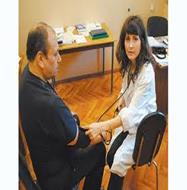 12_____________________ ______________________ ______________________ 12_____________________ ______________________ ______________________ |
Make a mini monologue using these words (your monologue should be about the work with the patient)
Listening 5 min.
Listen to the text paying attention to pronunciation of words (audio-cassette)
Writing 15 min.
Vocabulary and grammar tasks
b) being disappointed
c) having been disappointed
c) having gained
By her appearance she looked like a person whose life was hard and full of sorrows.
b) judged Judged
b) having shouted
b) having unloaded
a) having been ruined
b) having looked down
b) Having come up
Their car, they drove on, though it was past midnight.
b) Having repaired
c) Having been repaired
b) being towered
c) having towered
a) being discussed
c) having been discussed
c) having been done
That it was useless to argue with him, I dropped the subject.
b) having been seen
c) not having known
What does do the nurse on duty?
a) treat the patients
b) prescribe the remedies to the patients.
c) fill patients case histories.
When does begine the life at the hospital?
a) in the evening
b) early in the morning
c) in the afternoon
Where does keep a nurse all the drugs?
a) in the special drug cabinets
b) at a chemist’s
c) at the reception
What does do the doctor after the medical examination?
a) make one’s daily rounds
c) administer different procedures
Who does give the intramuscular and intravenous injections?
a) a nurse on duty
b) a doctor on duty
c) a chef on duty
Practice 10 min.
Roleplay:
1) a student A is a nurse on duty
a student B is a patient
2) a student A is a doctor on duty
a student B is a new employee
Situations to the dialogues:
1) The patient is admitted to the hospital and the nurse fills case history of this patient.
2) You are a doctor at the hospital and you explain the new employee about his duties.
5. Compile a conversation using the following phrases:
English grammar Test: questions on the theme «Relative Pronouns»
39 pages 
Examination questions | |||||||||||||||||
| Download | English grammar Test: questions on the theme «Relative Pronouns» |  |
| • Click on download for the complete and text • This is a sharing plattform for text documents • Upload a document and get this one for free • Or you can buy simply this text | ||
| Download | English grammar Test: questions on the theme «Relative Pronouns» |  |
| • Click on download for the complete and text • This is a sharing plattform for text documents • Upload a document and get this one for free • Or you can buy simply this text | ||
Those certain mushrooms
Despite it, certain are the mushrooms
Even though certain mushrooms
_ continue to pollute the ocean with all forms of contamination from sewage to solid wastes such as plastic containers remains a mystery to environmentalists.
Although people
People that
Those people that
____ and have low refractive indices, low dielectric constants, and low surface tensions has long been known by chemists.
That fluorocarbons are more volatile and denser than corresponding hydrocarbons
Those fluorocarbons are more volatile and denser than corresponding hydrocarbons
While fluorocarbons are more volatile and denser than corresponding hydrocarbons
When fluorocarbons are more volatile and denser than corresponding hydrocarbons
____ advances and broadens our understanding of the complex problems of soil fertility.
Whatever adds to the biochemical knowledge of soils
When it adds that to the biochemical knowledge of soils
While it is added to the biochemical knowledge of soils
Whomever adds to the biochemical knowledge of soils
Автономное учреждение ярославской области ярославский колледж сервиса и дизайна нужная грамматика
| Название | Автономное учреждение ярославской области ярославский колледж сервиса и дизайна нужная грамматика |
| страница | 3/3 |
| Тип | Документы |
1. Evans V. Round-up Grammar Practice 6. – Longman, 1998.
2. Evans V, Dooley J. Upstream intermediate. – Express publishing, 2002.
3. Fuch M. Focus on grammar: An intermediate course for reference and practice
/ Marjorie Fuch, Margaret Bonner, Miriam Westheimer. – Longman, 2000.
4. Vince M., Sunderland P. Advanced language practice with key. – Macmillan,
5. Hornby A.S. Oxford advanced learner’s dictionary of current English. – Oxford
University Press, 1995.
6. Блох М.Я. Практикум по английскому языку: Грамматика: Сборник уп-
ражнений: Учебное пособие для вузов / М.Я. Блох, А.Я. Лебедева, В.С.
Денисова. – М.: ООО «Издательство Астрель»: ООО «Издательство АСТ»,
7. Качалова К.Н., Израилевич Е.Е. Практическая грамматика английского
языка с упражнениями и ключами. – СПб.: БАЗИС, КАРО, 2006.
8. Комаровская С.Д. Modern English Grammar. Practical Course. Современ-
ная английская грамматика. Практический курс. «Вслед за Мерфи»: Учеб-
ник по грамматике английского языка. – 3-е изд., исп. – М.: КДУ, 2004.
9. Михельсон Т.Н., Успенская Н.В. Практический курс грамматики анг-
лийского языка. – М.: Изд-во: Наука, 1965.
10. Рубцова М.Г. Чтение и перевод английской научно-технической лите-
ратуры: Лексико-грамматический справочник / М.Г. Рубцова. – М.: ООО
«Издательство АСТ»: ООО «Издательство Астрель», 2002.
11. Учи английский онлайн – Говори свободно на английском
